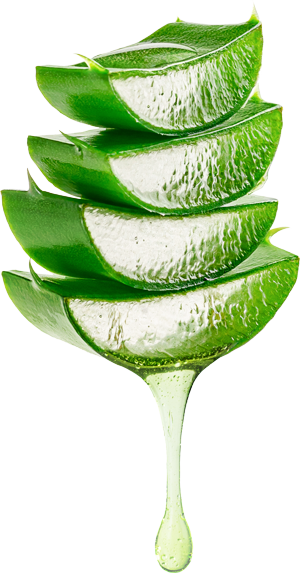Aloe vera in chicken and broiler nutrition for enhanced meat production
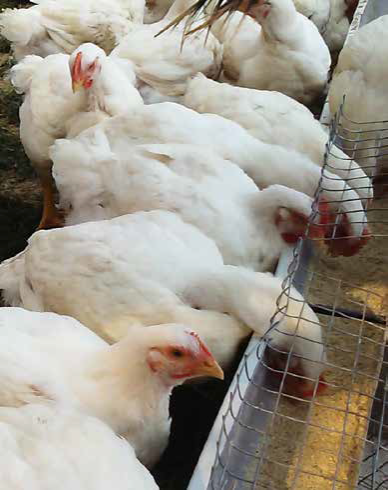
In the poultry industry, birds are maintained in confinement systems and large flocks to achieve higher economic returns. In such a situation, birds are exposed to stress and inducing factors such as high population, vaccination, and temperature changes. The intestinal microflora is influenced, and sometimes imbalanced, by these factors, leading to deteriorated health conditions for chickens. Therefore, the imbalance in intestinal microflora may result in a weakened immune system and failure of growth performance in chickens. Additives, such as antibiotics, may assist in dealing with such problems. Furthermore, long-term inclusion of antibiotics in animal and poultry diets can result in increased microorganism resistance to such groups in the human body. Thus, antibiotics are banned from being added to feed in the EU and some other countries.
Antibiotics at curative doses have been widely used in animal feed as growth promoters to enhance animal growth performance and production. In the presence of low levels of antibiotics, resistant cells survive and grow producing an antibiotic-resistant population in the final products. Therefore, the application of antibiotics as growth promoters in animal feed has been banned in the European Union since January 2006.
Aloe Vera, known as one of the oldest herbs with a history that dates to traditional medicine thousands of years ago, is found in tropical and subtropical climates and many countries have proper geographic features required for growing Aloe Vera.
The gel contained in Aloe Vera leaves is composed of about 98.5% to 99.5% water, and the remaining dry matter contains more than 75 biologically active ingredients which have medicinal effects that are useful in treating diseases. Major ingredients of Aloe Vera include vitamins, enzymes, saccharides, and low molecular-weight compounds (Choi and Chung, 2003) which give Aloe Vera its anti-inflammatory, wound-healing, anti-viral, antifungal, anti-tumor, anti-diabetic, and antioxidant effects.
Polysaccharides act as immunomodulators and even perform antimicrobial activities. It has been reported that polysaccharides can be used as feed supplements or as boosters in vaccination. Antibacterial, antiviral and
The antiparasitic effects of polysaccharides on broilers have also been reported.
Antimicrobial properties of herbs, therefore, have significant effects on the improvement of immune response and growth performance through increasing.
the number of useful bacteria.
Feed is a major component, affecting net return from the poultry business, because 80% of the total expenditure in terms of cash is spent on feed purchases.
To ensure more net return and to minimize high expenditure on feed are the main challenges, for which many research strategies have been practiced such as introducing feed supplements and feed additives.
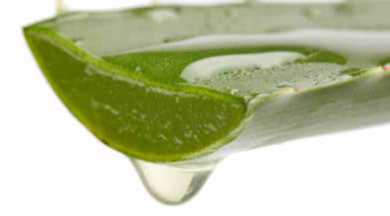
Formulate Aloe Vera with other natural ingredients to obtain maximum results.
In the past the major growth promoters were antibiotics. However, the current research is looking for a natural alternative to antibiotics because of their residue and subsequent resistance to bacteria. One of the major challenges faced by the poultry industry in the developing world is about improving the efficiency of production. To meet this challenge and maintain the efficiency of feed utilization, a series of attempts have been made by researchers. These include the incorporation of antimicrobials and other natural products, such as yeast and Aloe Vera into animal and poultry feeds.
It is well-documented that antibiotics have a beneficial effect on animal growth, performance, and health. However, increasing concerns regarding the overuse of antibiotics have promoted extensive investigation into alternatives to use the of sub-therapeutic antibiotics in the production of yeast.
Aloe Vera and yeast are the two medicinal plants found in tropical regions of India and are commonly incorporated in most poultry herbal medicines like liver tonics, anti-stress, antioxidants, antitoxic and growth-promoting preparations. Apart from these benefits, these two herbs are used for various functions like antibacterial, antiseptic, anti-inflammatory, nematocidal, and immunomodulatory properties. Besides, the usage of these herbs for medicinal preparations, it can also be included in the poultry diet as a feed additive to utilize their benefits to the maximum extent.
Mixing Aloe Vera powder and Yeast in your existing chicken water to increase the weight in the breast, thigh, and leg. This supplement may not increase the water and feed intake, however, there are studies that prove that adding Aloe Vera + Yeast into animal nutrition leads to better water absorption, making the meat bigger and healthier while retaining more nutrients as well.
“Add 2.5% Aloe Vera to the water of your chicken as a replacement for virginiamycin and other antibiotics.”
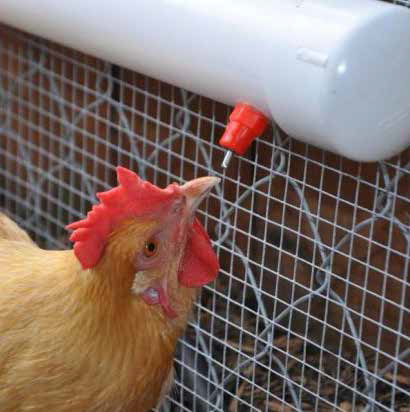
In the poultry industry, birds are maintained in confinement systems and large flocks to achieve higher economic returns. In such a situation, birds are exposed to stress and inducing factors such as high population, vaccination, and temperature changes. The intestinal microflora is influenced, and sometimes imbalanced, by these factors, leading to deteriorated health conditions for chickens. Therefore, the imbalance in intestinal microflora may result in a weakened immune system and failure of growth performance in chickens.
Additives, such as antibiotics, may assist in dealing with such problems. Furthermore, long-term inclusion of antibiotics in animal and poultry diets can result in increased microorganism resistance to such groups in the human body. Thus, antibiotics are banned from being added to feed in the EU and some other countries.
The increase in Aloe Vera gel contained in the feed results in a significant linear reduction in the number of E. coli colonies as well as a significant linear increase in the number of Lactobacillus colonies compared to chicken fed with antibiotics or without any supplements. The increase in the number of Lactobacillus bacteria in Aloe Vera gel confirms the antibacterial effects of Aloe vera, which stimulates the growth of useful intestinal flora and reduces the presence of gram-negative bacteria.
Polysaccharides contained in Aloe Vera (particularly Acemannan) have effects similar to those of prebiotics; that is, they increase the number of Lactobacillus colonies and reduce gram-negative bacteria.
Acemannan added to the broiler diet decreases the number of intestinal E. coli colonies. In fact, short-chain fatty acids, as the final product of Lactobacillus fermentation, can lower intestinal pH and make the environment unfavorable for gram-negative bacteria.
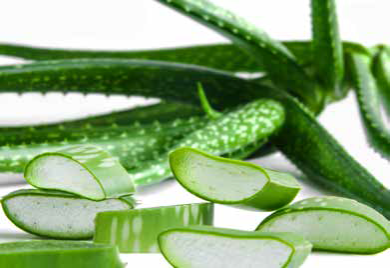
Share it on:
Latest News

Aloe vera laundry market
Aloe Vera is available at a premium, with psychology reward using Aloe Vera as part of the formula. This opens a whole new approach to fabric cleaning.
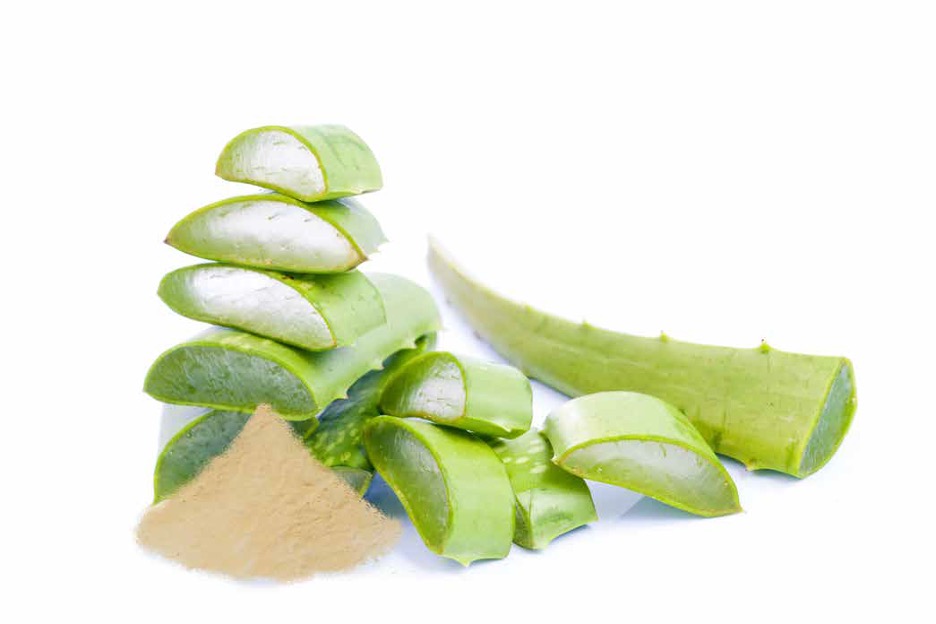
Aloe vera in Animal Nutrition
Aloe Vera is perhaps the most versatile plant on earth. Packed with vitamins, minerals, polysaccharides, phytosterols, antioxidants, and amino acids, this one plant is as effective for internal concerns as external ones.
For that reason AMB Wellness and Aloe Natural Solution supply Aloe Vera raw materials in bulk, with great success through its global network.
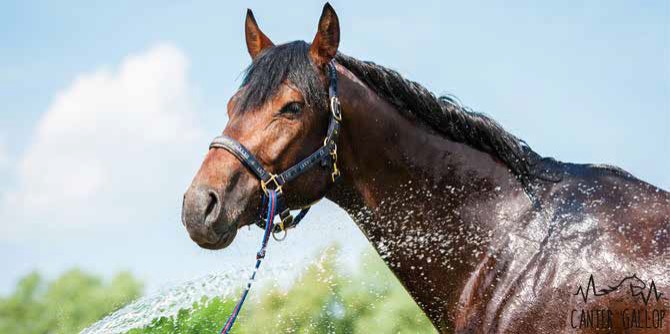
Aloe vera and Horse Grooming
Aloe Vera is great for increasing tissue suppleness by binding moisture to the skin. Equine eczema and psoriasis sufferers benefit greatly from Aloe Vera used internally and topically. Aloe has a balancing effect on the skin – it promotes healthy tissue growth and removal of dead skin – by stimulating the normal growth of living cells. It provides maximum penetration to protect against dryness and cracking.

